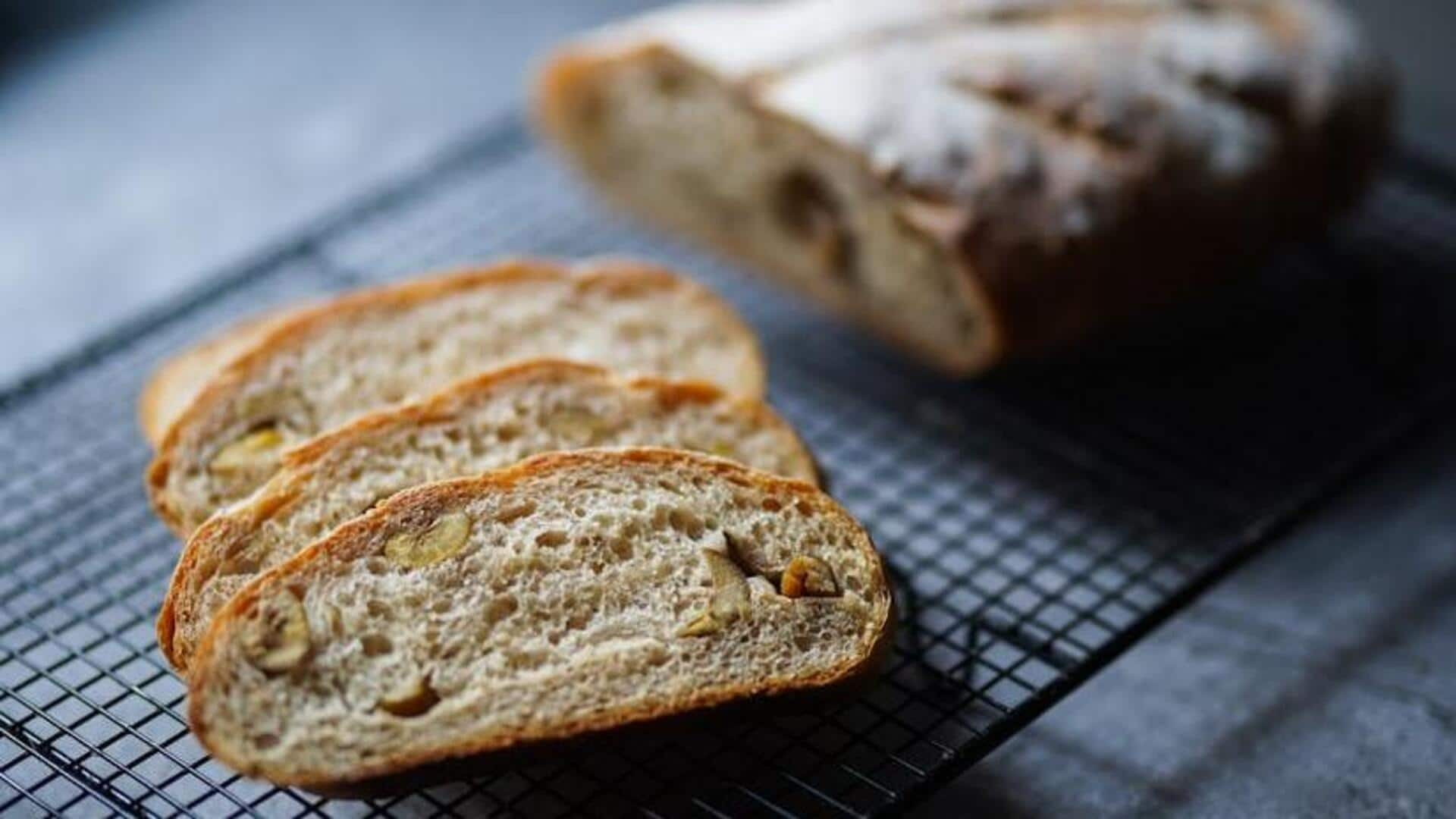
Rye bread vs. sourdough: Here's how they differ
What's the story
For health-conscious eaters, choosing the right bread type can be tricky. Rye bread and sourdough stand out as popular options for their unique flavors and health benefits. This article delves into the differences between these breads, examining fiber content, fermentation process, glycemic index, and overall health benefits, to help those striving for a nutritious diet make an informed choice.
Fiber facts
Fiber content comparison
Rye bread is a fiber powerhouse. One slice can pack up to five grams of fiber, that's roughly 20% of your daily needs in one shot! Sourdough, however, usually has less fiber unless it's made with whole grain flour. Additionally, the fermentation process in sourdough might alter the fiber quality, potentially making it more digestible.
Fermenting differences
The fermentation process
The distinctive flavor and health advantages of sourdough stem from its natural fermentation process using wild yeast and bacteria. This not only imparts a tangy taste but also enhances nutrient absorption. By breaking down phytates, it facilitates mineral uptake, hence called the healthiest bread. In contrast, rye bread typically utilizes added yeast for fermentation, missing out on the natural process that defines sourdough.
GI scores
Glycemic index insights
The glycemic index indicates how quickly foods raise your blood sugar. Opt for lower glycemic index foods to keep your blood sugar steady. Sourdough is a good choice because its acidity slows down glucose absorption. Rye bread is another low glycemic index winner, beating out white or whole wheat. However, its glycemic index can fluctuate based on the specific ingredients used in its preparation.
Nutritional nuances
Health benefits breakdown
Both rye bread and sourdough provide a range of health benefits beyond just their fiber content and GI scores. Rye is packed with minerals like magnesium and iron and contains lignans which exhibit antioxidant properties. Sourdough's lactic acid bacteria contribute to gut health by fostering beneficial gut flora and they may even alleviate gluten sensitivity for some individuals by partially digesting gluten during the fermentation process.
Personal preference
Choosing what's best for you
Choosing between rye bread and sourdough ultimately depends on your individual preference for taste, texture, dietary considerations, and how your body reacts to each type of bread. Some people may enjoy the hearty texture and strong flavor of rye, while others may prefer the sour taste and chewy texture of sourdough.